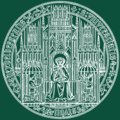Bose-Einstein Condensates (BEC), as routinely generated at Heidelberg University both for large ensembles and with only few atoms, are the prototypes of mesoscopic quantum systems. Therefore, they are ideal model systems to systematically explore in well-controlled manner macroscopic quantum phenomena like phase transitions, non-linear matter wave optics, the transition between molecular BECs and Cooper-pair based super-fluidity, and their microscopic foundations on the single-atom or -molecule basis. For example, the group at the Kirchhoff Institute for Physics (KIP) of Heidelberg University concentrates on studying few atom condensates in designed potentials with the goal to reveal that the usual mean field approach describing BEC dynamics may not be applicable in all situations. These experiments are intended to be a testing ground for enhanced theoretical descriptions within the chemistry department based on multi-orbital mean field approaches or even to provide quantum field theoretical predictions. In addition, atomic clusters in solids shall be investigated experimentally at extremely low temperatures. In such situations, quantum mechanical tunnelling may occur between various equilibrium states. It is aimed to measure the involved quantum coherence and to investigate various means to influence this quantity.






